The Politics of Chemistry
Science and Power in Twentieth-Century Spain
£24.99
Part of Science in History
- Author: Agustí Nieto-Galan, Universitat Autònoma de Barcelona
- Date Published: October 2022
- availability: Available
- format: Paperback
- isbn: 9781108712347
£
24.99
Paperback
Other available formats:
Hardback, eBook
Looking for an inspection copy?
This title is not currently available on inspection
-
Agustí Nieto-Galan argues that chemistry in the twentieth century was deeply and profoundly political. Far from existing in a distinct public sphere, chemical knowledge was applied in ways that created strong links with industrial and military projects, and national rivalries and international endeavours, that materially shaped the living conditions of millions of citizens. It is within this framework that Nieto-Galan analyses how Spanish chemists became powerful ideological agents in different political contexts, from liberal to dictatorial regimes, throughout the century. He unveils chemists' position of power in Spain, their place in international scientific networks, and their engagement in fierce ideological battles in an age of extremes. Shared discourses between chemistry and liberalism, war, totalitarianism, religion, and diplomacy, he argues, led to advancements in both fields.
Read more- Explores the role of chemistry as a modernising agent in the twentieth century
- Highlights the inherently political nature of science, and its links with different political regimes, from dictatorships to democracies
- Enriches our knowledge about the history of Spain in the twentieth century
Reviews & endorsements
'Scientists were prominent in building Spain's democratic Republic - two, the chemist José Giral and the physiologist Juan Negrín, became prime ministers. Science under the Franco dictatorship was dominated by one chemist, José María Albareda while another, Manuel Lora-Tamayo, was Minister of Education and Science in the 1960s. This fascinating and totally original work examines the links between chemistry and politics in a way that casts its light far beyond the specifics of Spain.' Paul Preston, London School of Economics and Political Science
See more reviews'After taking sides during the Spanish Civil War, chemists either emigrated, endured persecution in Spain, or supported the Franco regime - the latter often selling out their colleagues in the process. Today the Fascist chemists are honored in Spain, but not their victims, an injustice this path-breaking and important book will correct.' Mark Walker, Union College, New York
'Anyone interested in the history of chemistry, the relationship between power and science, and the formations of scientific communities and identities would find this carefully researched book an open invitation to follow further research and explore the unresolved topics that the book elucidates.' Santiago Guzmán Gámez
'The book provides a rich account of the political dimension of chemistry … the book provides an extraordinary understanding of the role of chemistry and its practitioners in the shaping of science and society in the twentieth century.' Ignacio Suay-Matallana
'… Nieto-Galan's account is very convincing … has not only written an inspiring book on the 'moral ambiguity of chemistry,' but has also contributed significantly to the intersection of science, power, and politics in the twentieth century.' Anna Catharina Hofmann, Technology and Culture
'The Politics of Chemistry is a much needed addition to the history of Spanish chemistry, the history of science in the Francoist era, and more generally how scientists behave in authoritarian or totalitarian regimes.' Peter J. T. Morris, Journal of Modern History
Customer reviews
Not yet reviewed
Be the first to review
Review was not posted due to profanity
×Product details
- Date Published: October 2022
- format: Paperback
- isbn: 9781108712347
- length: 310 pages
- dimensions: 230 x 150 x 16 mm
- weight: 0.448kg
- availability: Available
Table of Contents
List of figures
Preface
Acknowledgments
Chronology
List of abbreviations
Introduction
Biographies of power
A political chemistry
1. Dreams of Modernity
1.1 Cosmopolitanism
1.2 Laboratories and schools
1.3 Useful chemistry
2. A republican science
2.1 A new enlightenment
2.2 Nobel visitors
2.3 The Silver Age of industry
3. War weapons
3.1 A chemical civil war
3.2 A damaged community
3.3 Tortured skills
4. Totalitarian ambitions
4.1 Fascist chemistry
4.2 Chemistry and religion
5. Autarchic ambiguities
5.1 'Our' chemicals
5.2 'Technical' chemistry
5.3 Chemical diplomacy
6. Technocratic progress
6.1 'Neutral' expertise
6.2 Cold war allies
6.3 Corporate chemistry
7. Liberal dissent
7.1 Chemists in exile
7.2 Internal refugees
Conclusion: the moral ambiguity of chemistry
Pure-applied chemistry
Modernisation paradoxes
A troubled identity
Chemists as intellectuals
History and memory
Addendum: Juan Julio Bonet Sugrañes (1940–2006)
Bibliography
Index.
Sorry, this resource is locked
Please register or sign in to request access. If you are having problems accessing these resources please email [email protected]
Register Sign in» Proceed
You are now leaving the Cambridge University Press website. Your eBook purchase and download will be completed by our partner www.ebooks.com. Please see the permission section of the www.ebooks.com catalogue page for details of the print & copy limits on our eBooks.
Continue ×Are you sure you want to delete your account?
This cannot be undone.
Thank you for your feedback which will help us improve our service.
If you requested a response, we will make sure to get back to you shortly.
×
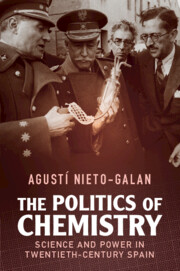

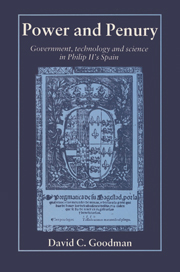
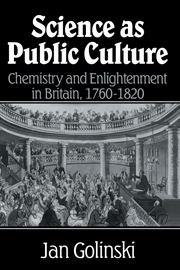
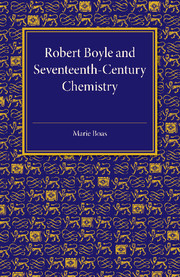
.jpg)
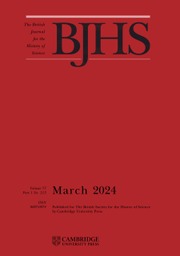
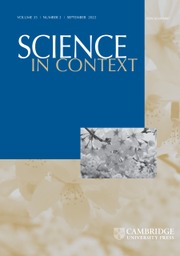
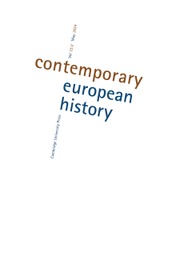
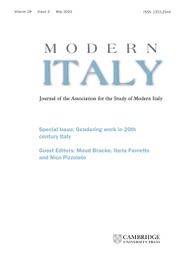
.jpg)